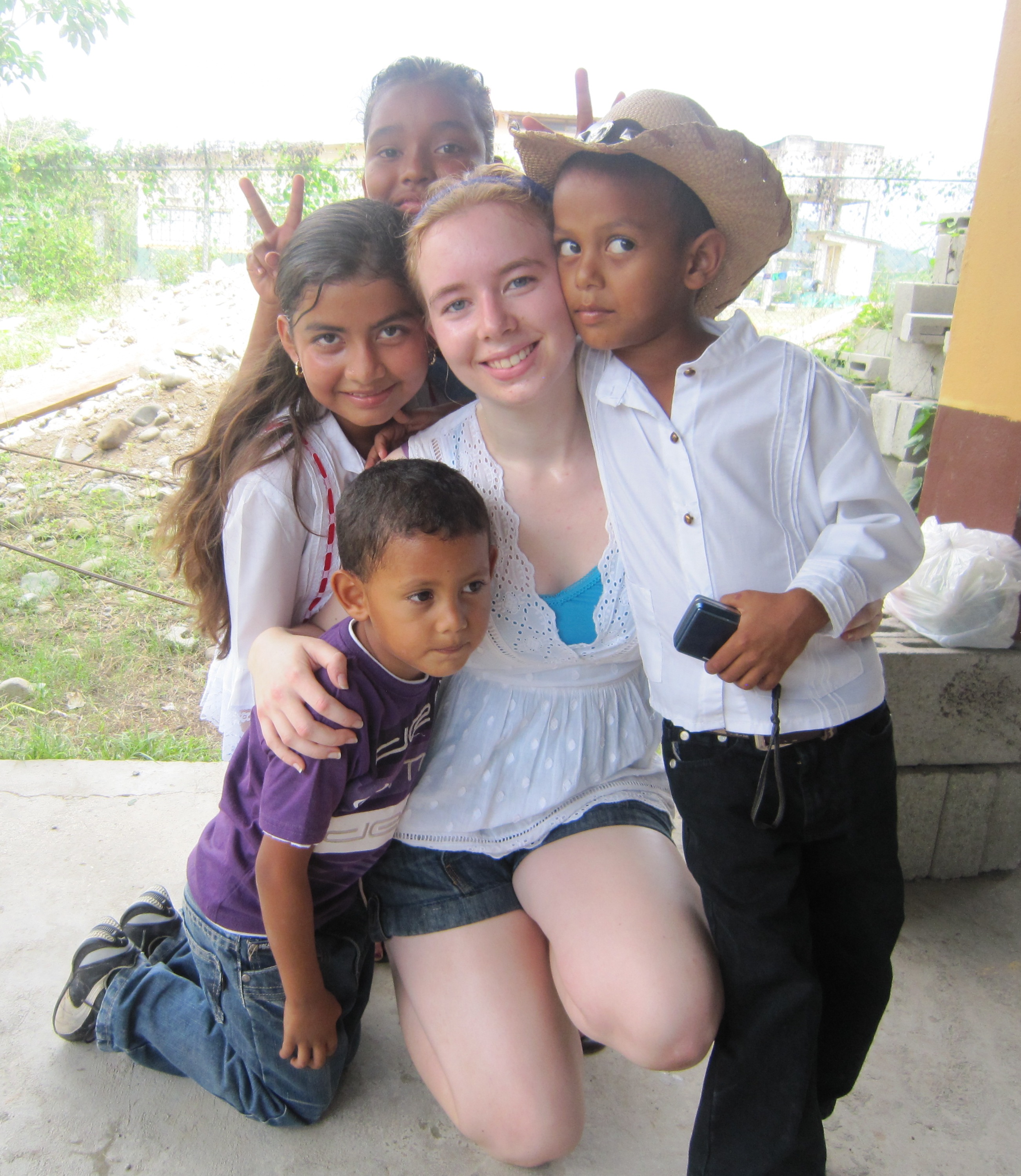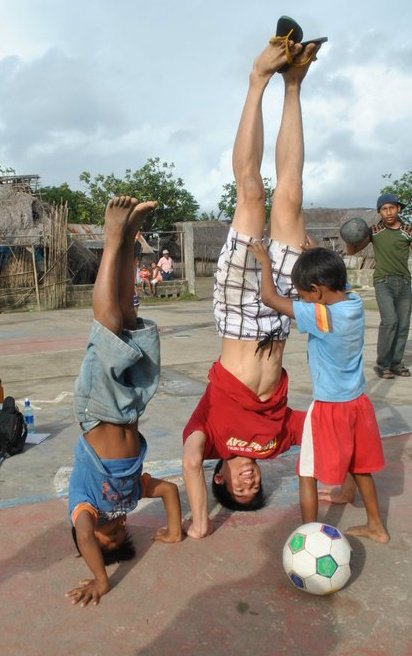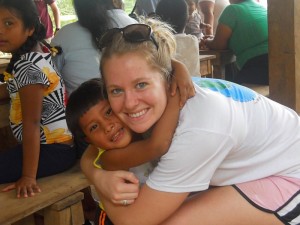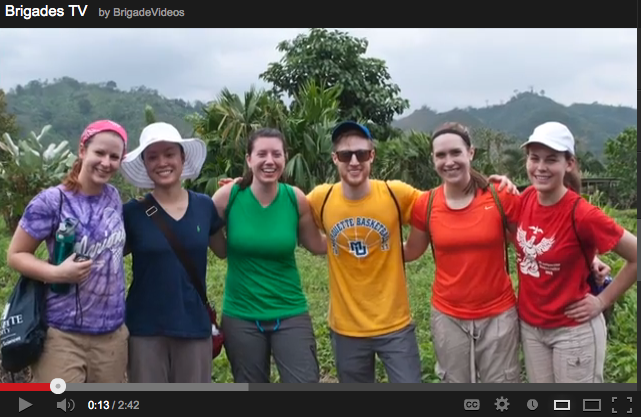Katherine Robinson
Each week we bring you the story and perspective of an outstanding volunteer. This week, meet Katherine Robinson, a Business Brigades volunteer from Johns Hopkins University, who recently participated in a Brigades to Panama.
—-
When I arrived in Panama, I hardly spoke a word of Spanish. I had never been to Latin America. I had no idea what to except. Though I was excited at the prospect of volunteering in a less developed country than the United States and getting to know a new culture, I had no idea how fulfilling and helpful a single week would be. To be honest, I was a little bit skeptical.
As soon as I arrived in the community of Platanilla, I realized that our mission was one of listening, understanding, and 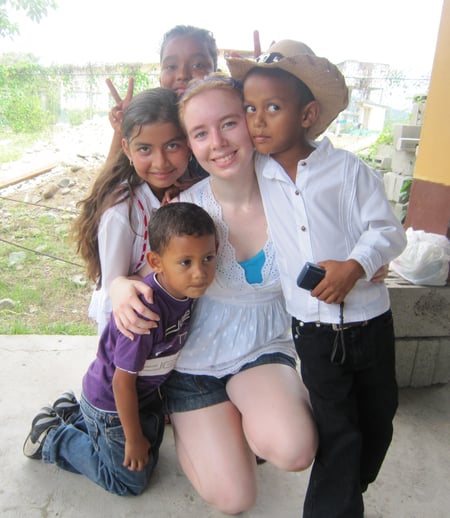 interacting with the community so that we could provide suggestions to make their lives easier. Though a week is so short, this approach is very effective. We were able to make a difference in a week because we spent hours genuinely getting to know our clients and their needs. Rather than just talking about their businesses or financial worries, we learned about their lives and families. We got to know their children and lifestyles. And they got to know us, too. As met and talked over chicheme, we shared our experiences and learned about some of the differences between our culture and theirs. One afternoon, we talked about dating practices of Americans and Panamanians—not business related, but important in the relationships we developed in the community. Our client was shocked to learn that none us were mothers, married, or even dating anyone. This wasn’t the type of conversation I excepted to have with my clients, but it certainly added character and color to my trip.
interacting with the community so that we could provide suggestions to make their lives easier. Though a week is so short, this approach is very effective. We were able to make a difference in a week because we spent hours genuinely getting to know our clients and their needs. Rather than just talking about their businesses or financial worries, we learned about their lives and families. We got to know their children and lifestyles. And they got to know us, too. As met and talked over chicheme, we shared our experiences and learned about some of the differences between our culture and theirs. One afternoon, we talked about dating practices of Americans and Panamanians—not business related, but important in the relationships we developed in the community. Our client was shocked to learn that none us were mothers, married, or even dating anyone. This wasn’t the type of conversation I excepted to have with my clients, but it certainly added character and color to my trip.
My trip to Panama reminded of the power of the smile. Aside from “hola?” and “gracias” I was unable to speak to most people in our community and even some of the staff at the compound. (Thank goodness for my amazing translator, Kazu!) Yet in this silent dialogue, I was able to build relationships. Whenever I walked by someone new, I would smile at them. And they would smile back, showing that they knew my intentions were good. Such a simple exchange, yet so important. The good citizens of Platanilla let us into their community and shared their culture with us, giving us an incredible experience. Even though they couldn’t understand my speech, I think they understood my passion and my excitement at being in a new country, simply because I was positive and full of smiles.
My favorite part of Brigades was the farewell luncheon we had with the community. When the daughter in one of the families I worked with suggested a round of “duck, duck, goose” (In Spanish: Pato, Pato, Burro or “Duck, Duck, Donkey”) I was happy to play. “Duck, duck, donkey” turned into tag and soccer and spending the whole afternoon playing games from childhood and running around and laughter. Even though I didn’t speak Spanish, the kids knew that I was happy to play any game with them, and I knew they were having a great time. When I couldn’t understand them and asked one of the translators, it turned out that they were saying “let’s play again!” after a particularly intense game of tag.
The moral of the story is that even with cultural differences, language barriers, and stifling humidity, positivity and listening helped us build relationships and breakdown the barriers that stood between us. Our job wasn’t to judge them or to change them, it was simply to provide suggestions based on our education and experience that would make their daily lives easier. Little things, like writing your budget down or taking inventory of the goods that you receive in your store, are not necessary, but they are simple changes that can improves one’s quality of life or the profit margins of one’s business. What I love about the Brigades approach is that it is completely relevant. We are not preaching to large groups about topics that are irrelevant to their lives. We’re not teaching them business practices that will never succeed in their communities. We are listening, learning, and sharing. On top of that, we have the opportunity to build relationships across languages and better to understand the values of nonverbal communication—also known as the value of a smile! J
Now, a month after my trip, I know that I will never forget the families that I met in Panama. And maybe, just maybe, some of them remember me, too. Though I don’t know what my future holds, I would love to go back to the community (hopefully with better Spanish!) and continue to travel the world, gaining insight into its many diverse cultures. Definitely as I move forward and plan for my future career in international development I will remember the two important lessons I learned on my amazing trip to Platanilla, Panama: 1) listen actively in order to understand each individual and family I meet and 2) don’t be afraid smile, especially when in a new situation.

